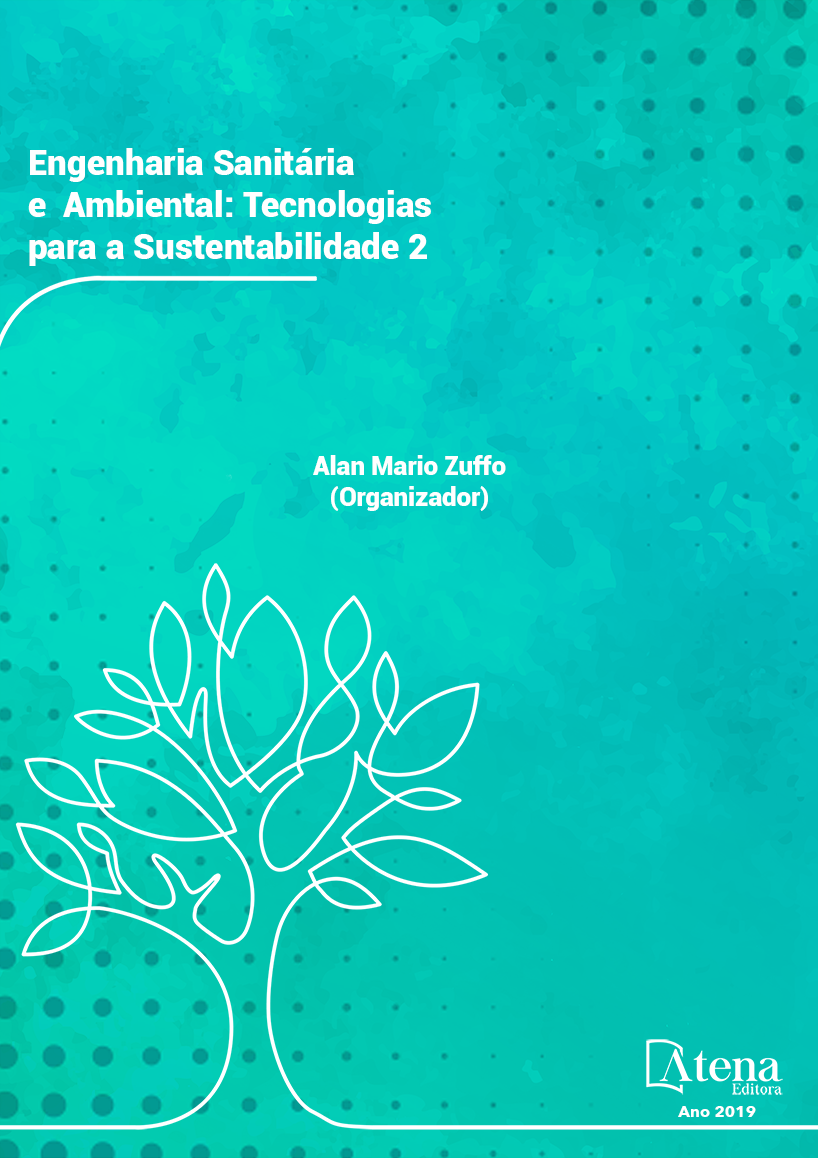
AVALIAÇÃO DA MATÉRIA ORGÂNICA E COMPOSTOS NITROGENADOS EM WETLANDS COMO ALTERNATIVA NO PÓS-TRATAMENTO DE ESGOTO DOMÉSTICO
Visando contribuir para melhoria
das condições sanitárias de comunidades
desprovidas de saneamento, Wetlands
Construidos são sistemas utilizados
principalmente para o tratamento de esgotos
e apresentam como vantagem simplicidade
e baixo custo de operação e baixo consumo
energético. O presente trabalho objetivou avaliar
o desempenho de Wetlands na remoção de
matéria orgânica, nitrogenada e turbidez. Este
possui diâmetro de 30 cm, 65 cm de profundidade
útil, operando em fluxo descendente, com altura
livre de 10 cm afim de evitar transbordamento
devido à possível colmatação, tendo 10 cm
de pedrisco (4,8 a 9,5 mm), 35 cm de areia
(coeficiente de uniformidade de 2,52 e de
permeabilidade 0,0143, à partir da curva
granulométrica), 10 cm de brita 2 (32 a 25 mm),
envolto por manta geotêxtil. A planta utilizada
no mesmo é a Helicônia (Heliconia rostrata),
com área de influência de 150 cm2. O sistema
foi desenvolvido com 2 taxas de aplicação,
sendo essas respectivamente de 70 L.m-2.dia-1
e 95 L.m-2.dia-1, com controle da vazão realizado
por bomba peristáltica. A eficiência dos sistema
foram avaliadas pelo percentual de remoção,
com respectivamente: 98% em ambos sistemas
(turbidez); 52 e 53% (DQO); 31 e 46% (DBO);
52 e 55% (NTK); temperatura média de 21° e
pH neutro na faixa 6 a 7. Foi possível observar
que os sistemas, quando aplicados a diferentes
taxas de aplicação não apresentaram diferença
significativa entre os parâmetros devido aos
poucos dias de monitoramento dos sistemas.
AVALIAÇÃO DA MATÉRIA ORGÂNICA E COMPOSTOS NITROGENADOS EM WETLANDS COMO ALTERNATIVA NO PÓS-TRATAMENTO DE ESGOTO DOMÉSTICO
-
DOI: 10.22533/at.ed.50019110412
-
Palavras-chave: Wetlands, tratamento de esgoto doméstico, sistemas naturais.
-
Keywords: Wetlands, domestic sewage treatment, natural systems.
-
Abstract:
Visible to improve the sanitary
conditions of communities deprived of sanitation,
The constructs Wetlands are systems mainly
destined to the treatment of sewage and they
present the advantage of simplicity and low cost
of operation and low energy consumption. The
present work aimed to evaluate the performance
of Wetlands in the removal of organic matter,
nitrogen and turbidity. The diameter is 30 cm,
65 cm of useful depth, operating in descending
flow, with free height of 10 cm to avoid the
clogging, having 10 cm of hail (4.8 to 9.5 mm),
35 cm of sand ( coefficient of uniformity of 2.52
and permeability 0.0143, from the granulometric curve), 10 cm of gravel 2 (32 to 25
mm), wrapped by geotextile blanket. A plant used is Heliconia (Heliconia rostrata), with
influence area of 150 cm2. The system was developed with two stages of advertisement,
these being together of 70 L.m-2.dia-1 and 95 L.m-2.dia-1, with the peristaltic pump
flow control. The rate of the systems was evaluated by the percentage of removal,
with 98% in the both systems (turbidity); 52 and 53% (COD); 31 and 46% (BOD); 52
and 55% (NTK); pH and neutral pH in the range of 6 to 7. It was possible to observe
that the systems, when applied at different application rates did not present significant
differences among the parameters due to the few days of monitoring of the systems.
-
Número de páginas: 15
- Isadora Godoy Brandão
- Beatriz Santos Machado
- Juliane Gonçalves da Silva


